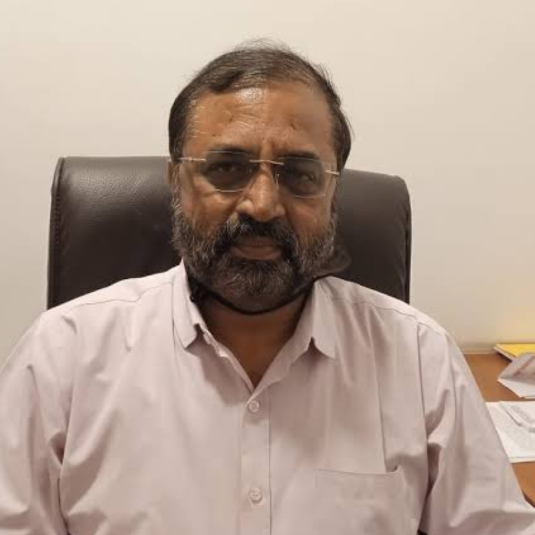Reasons for Nosebleeds and Their Treatment
Know the reasons for nosebleeds, why it happens, what to do if nose bleeds and treatment options. Learn about how to prevent them and more.


Introduction
Nosebleeds, medically known as epistaxis, can be a common yet alarming experience. While most nosebleeds are harmless and stop on their own, understanding why they happen and how to manage them can help ease your worries. This article explains the reasons behind nosebleeds, when to seek medical help, and simple ways to prevent them.
Why Do Nosebleeds Happen?
The inside of your nose has many tiny blood vessels that can bleed easily when irritated. Some common causes include:
1. Dry Air – Cold weather, air conditioning, or dry climates can dry out the nasal lining, making it prone to bleeding.
2. Nose Picking – Scratching or picking the inside of the nose can damage blood vessels.
3. Infections & Allergies – Colds, sinusitis, or allergies can inflame the nasal passages, leading to bleeding.
4. Injury – A blow to the nose, even a minor one, can cause bleeding.
5. High Blood Pressure – While not a direct cause, uncontrolled hypertension may make nosebleeds harder to stop.
6. Medications – Blood thinners (like aspirin or warfarin) and nasal sprays can increase bleeding risk.
7. Foreign Objects – Children sometimes insert small objects into their noses, causing irritation.
8. Underlying Health Conditions – Rarely, nosebleeds may signal blood clotting disorders or nasal tumors.
Consult ENT specialist for Personalised Advice
Types of Nosebleeds
- Anterior Nosebleed (Front of the Nose) – The most common type, usually mild and easy to control.
- Posterior Nosebleed (Back of the Nose) – Less common but more serious, often requiring medical attention.
What to Do When You Have a Nosebleed?
If your nose starts bleeding, stay calm and follow these steps:
1. Sit Upright & Lean Slightly Forward – This prevents blood from flowing down your throat.
2. Pinch Your Nose – Use your thumb and index finger to pinch the soft part of your nose (just below the bony bridge) for 10-15 minutes. Breathe through your mouth.
3. Apply Ice – Placing a cold pack on your nose or forehead can help constrict blood vessels.
4. Avoid Tilting Your Head Back – This may cause blood to drip into your throat, leading to nausea.
5. Don’t Blow Your Nose – Wait a few hours after the bleeding stops to avoid restarting it.
If bleeding continues after 20 minutes, seek medical help.
When to See a Doctor?
Most nosebleeds are minor, but consult a doctor if:
- The bleeding is heavy and doesn’t stop after 20 minutes.
- You feel dizzy, weak, or have trouble breathing.
- The nosebleed follows a head injury.
- You experience frequent nosebleeds (more than once a week).
- You’re on blood-thinning medications.
Preventing Nosebleeds
To reduce the risk of nosebleeds:
- Use a Humidifier – Keeps nasal passages moist, especially in dry weather.
- Apply Petroleum Jelly – Lightly coat the inside of your nostrils to prevent dryness.
- Avoid Nose Picking – Trim children’s nails and discourage nose-picking habits.
- Stay Hydrated – Drinking enough water helps maintain moisture in nasal tissues.
- Manage Allergies – Use saline sprays or antihistamines (as prescribed) to reduce irritation.
Be Gentle While Blowing Your Nose – Avoid forceful blowing, especially during colds.
Medical Treatments for Severe Nosebleeds
If nosebleeds are frequent or severe, a doctor may recommend:
- Cauterization – Sealing the bleeding vessel with heat or chemicals.
- Nasal Packing – Placing gauze or special sponges to apply pressure.
- Medication Adjustments – Changing blood thinners if necessary.
- Surgery (Rare Cases) – For persistent bleeding due to abnormal blood vessels.
Final Thoughts
Nosebleeds are usually not a cause for concern, but knowing how to handle them can make a big difference. Simple measures like keeping your nose moist and avoiding irritation can prevent most cases. However, if nosebleeds are frequent or severe, it’s best to consult a doctor for proper evaluation.
Consult ENT specialist for Personalised Advice
Consult ENT specialist for Personalised Advice

Dr. Tanvi Choubey
Ent Specialist
7 Years • MBBS, MS (ENT). Fellowship in Head Neck Onco Surgery . Consultant - ENT
Rourkela
Apollo Hospitals, Rourkela, Rourkela

Dr. Chanchal Pal
Ent Specialist
36 Years • MBBS, MS (ENT, Head & Neck), PG Certificate (Hospital Administration)
Delhi
Apollo Hospitals Indraprastha, Delhi
(50+ Patients)

Dr. Nishant Rana
Ent Specialist
8 Years • MBBS. MS ENT
Delhi
Apollo Hospitals Indraprastha, Delhi

Dr. Major Bhaskar K
Ent Specialist
30 Years • MBBS,MS ENT (OTO - Rhino-Laryngology)
Bangalore
Apollo Clinic Bellandur, Bangalore

Dr. Surya Kanta Pradhan
Ent Specialist
20 Years • MBBS, MS ( B.H.U). ENT- Head & Neck Surgery (Otorhinolaryngologist ). Laser & Cochlear implant Surgeon. Senior Consultant.
Bhubaneswar
Apollo Hospitals Old Sainik School Road, Bhubaneswar
(150+ Patients)
Consult ENT specialist for Personalised Advice

Dr. Tanvi Choubey
Ent Specialist
7 Years • MBBS, MS (ENT). Fellowship in Head Neck Onco Surgery . Consultant - ENT
Rourkela
Apollo Hospitals, Rourkela, Rourkela

Dr. Chanchal Pal
Ent Specialist
36 Years • MBBS, MS (ENT, Head & Neck), PG Certificate (Hospital Administration)
Delhi
Apollo Hospitals Indraprastha, Delhi
(50+ Patients)

Dr. Nishant Rana
Ent Specialist
8 Years • MBBS. MS ENT
Delhi
Apollo Hospitals Indraprastha, Delhi

Dr. Major Bhaskar K
Ent Specialist
30 Years • MBBS,MS ENT (OTO - Rhino-Laryngology)
Bangalore
Apollo Clinic Bellandur, Bangalore

Dr. Surya Kanta Pradhan
Ent Specialist
20 Years • MBBS, MS ( B.H.U). ENT- Head & Neck Surgery (Otorhinolaryngologist ). Laser & Cochlear implant Surgeon. Senior Consultant.
Bhubaneswar
Apollo Hospitals Old Sainik School Road, Bhubaneswar
(150+ Patients)